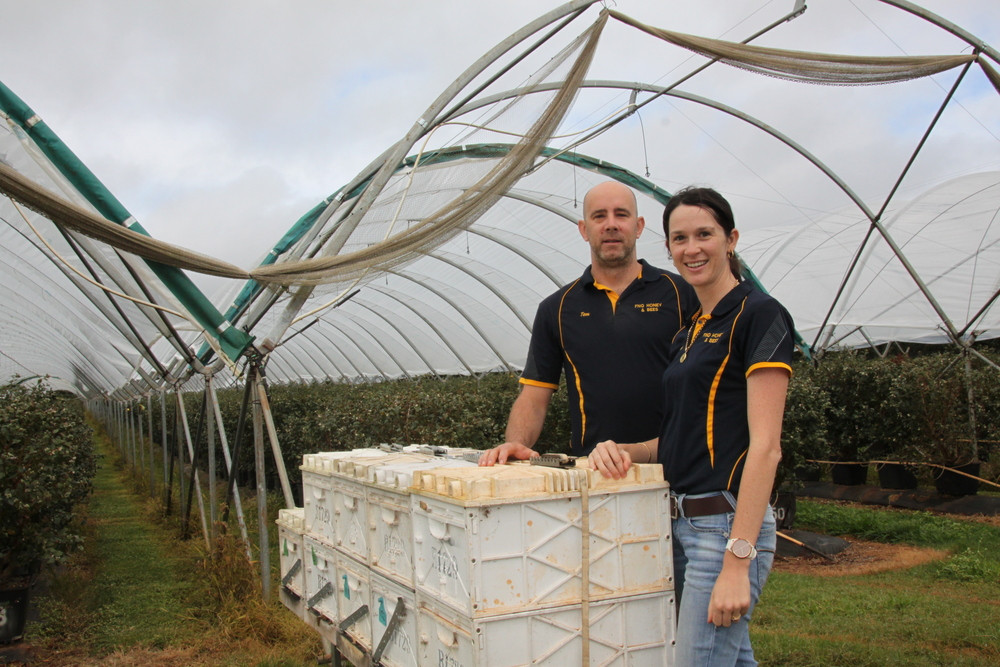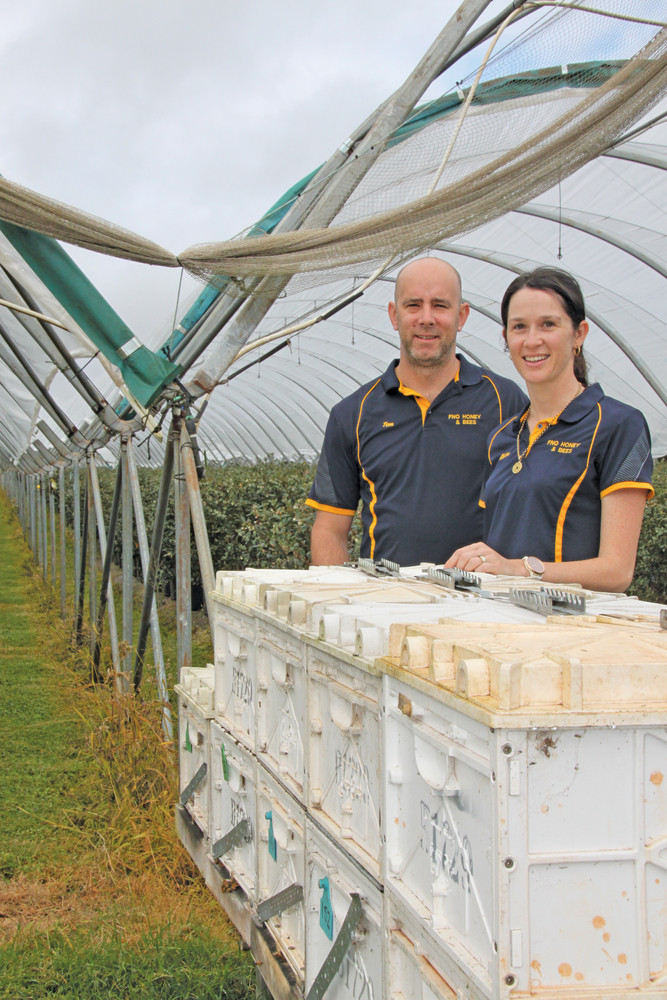Community & Business
8 July, 2022
Chasing the sweet life
BEES are very much a generational thing for Tom Bidner.

His father, Dan was a bee-keeper back in 1980, and now over 40 years later, like his father, Tom is spending most of his time chasing native blossom and shifting hives around Far North Queensland and loving it.
Dan supplied hives for macadamia and pumpkin pollination, back when macadamias were an important crop on the Tablelands and honey was so cheap it was hardly worth bottling.
But Dan's interest in commercial bee-keeping waned in line with the demise of the macadamia industry, while Tom's fascination remained and he always kept his hand in the industry as a backyard operator.
In 2016, the dual qualifi ed diesel mechanic, was looking for a career change and bee-keeping just seemed the natural path to follow.
He started slowly ramping up his business from a base of 10 hives until, within four years, he was working with 150. He had started retailing "TommyBee Apiaries" – The Beekeepers Honey, his single origin, small batch product line, and its growing success was already taking up a lot of his time.
When the Mena Creek-based business, FNQ Honey came onto the market in 2020, the purchase seemed the right fi t and Tom and his wife Chloe took a gamble, acquiring the 200 extra honey hives and equipment, gaining a new customer base in the deal.
The workload more than doubled overnight, transforming the hobbyfarm operation into the Tableland's largest commercial beekeeping business. Assessing the workload of their new venture, Chloe Bidner, an accountant with McKinnon and Co, Atherton for over 12 years realised Tom was going to need help.
Phasing gradually out of her professional career, Chloe now manages their company's marketing, accounts, packaging and deliveries.
“I have enjoyed working to expand our market share, and Covid has actually helped with that,” she said.
“The Covid-related production and freight disruptions have meant that sometimes when I am making supermarket deliveries, there is no other honey on the shelf. Lack of supply combined with increased support for local product has increased our sales by 30 per cent.
“We decided to retain our premium TommyBee brand, which we established from scratch. It has its own following and sells to a smaller boutique market through local Air BnB's, butcher shops and cafes, accounting for about 10 per cent of our sales.
“We package around 500kg of honey per week and that honey is sold through numerous supermarkets across the Tablelands, Cairns, Innisfail and Tully and distributed wholesale through delicatessens and health food stores.
“Our honey is very pure and does not undergo the pasteurisation and ultra-fi ltration that some of the larger companies use to prevent their product crystallising on the shelf.
“The bees maintain a constant hive temperature of 35 degrees, so when honey is stored at lower temperatures crystallisation can occur, but honey has no use by date. Simply warming the honey in a bowl of warm water or sitting it out in the sun will return it to its liquid state,” Mrs Bidner said.

Providing 600 hives to horticulturalists for pollination services has been a growth industry for Tom and Chloe and now accounts for half of their annual business income.
Avocado industry studies have revealed that fruit set rates from crops using bees in the pollination process sit at 5 per cent, some 17 times the 0.3 per cent that occurs when bees are not part of the process.
“The quantity of hives and their management, varies according to the crop, but we work on an average of 2.5 hives to the hectare.
Using hives at the recommended rates, should double crop production right across the board,” Mr Bidner said.
“Blueberries flower for around 5-6 months and the tunnels can be quite hard on the bees, as they sometimes get trapped high above the plants on their return to the hive, so we swap those hives out every five or six weeks.
Avocadoes only have a 10-week flowering cycle, so one set of hives will complete that job. “Hives used for pollination have to be managed differently.
We often don't harvest any real quantities of honey from them, but all the same hive husbandry has to be carried out, so that loss of return has to be factored into the hire cost.
“Australia used to be heaven for honey bees. There were hardly any pests or diseases here to affect them, but we have to be very vigilant now as there are a lot of new pests that didn't exist 20-30 years ago.”


